Parker Solar Probe Prepares to Head Toward Launch Pad
Posted on 2018-07-31 11:31:00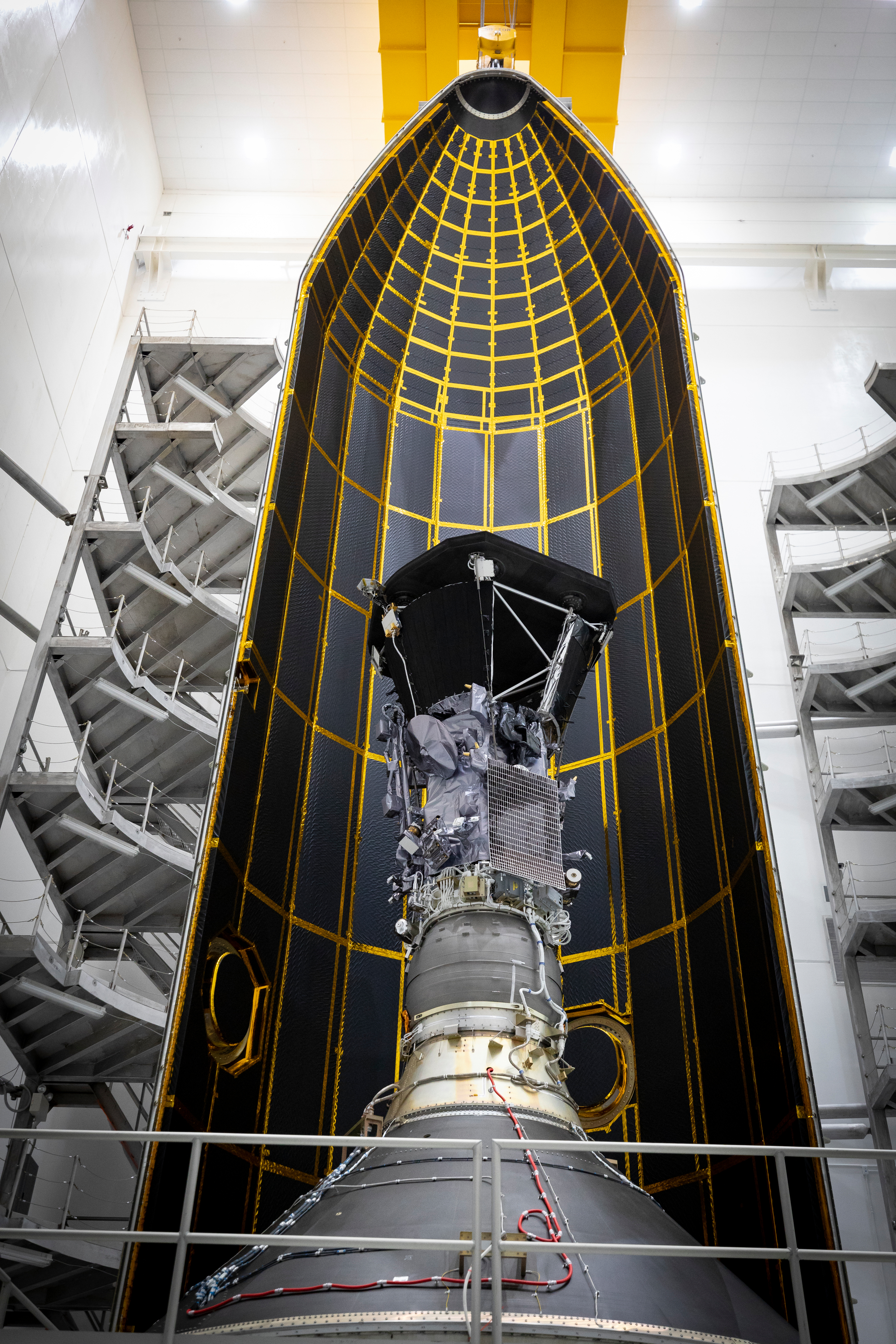
Seen here inside one half of its 62.7-foot tall fairing, NASA’s Parker Solar Probe was encapsulated on July 16, 2018, in preparation for the move from Astrotech Space Operations in Titusville, Florida to Space Launch Complex 37 on Cape Canaveral Air Force Station, where it will be integrated onto its launch vehicle, a United Launch Alliance Delta IV Heavy.
Credit: NASA/Johns Hopkins APL/Ed Whitman
High-Res Image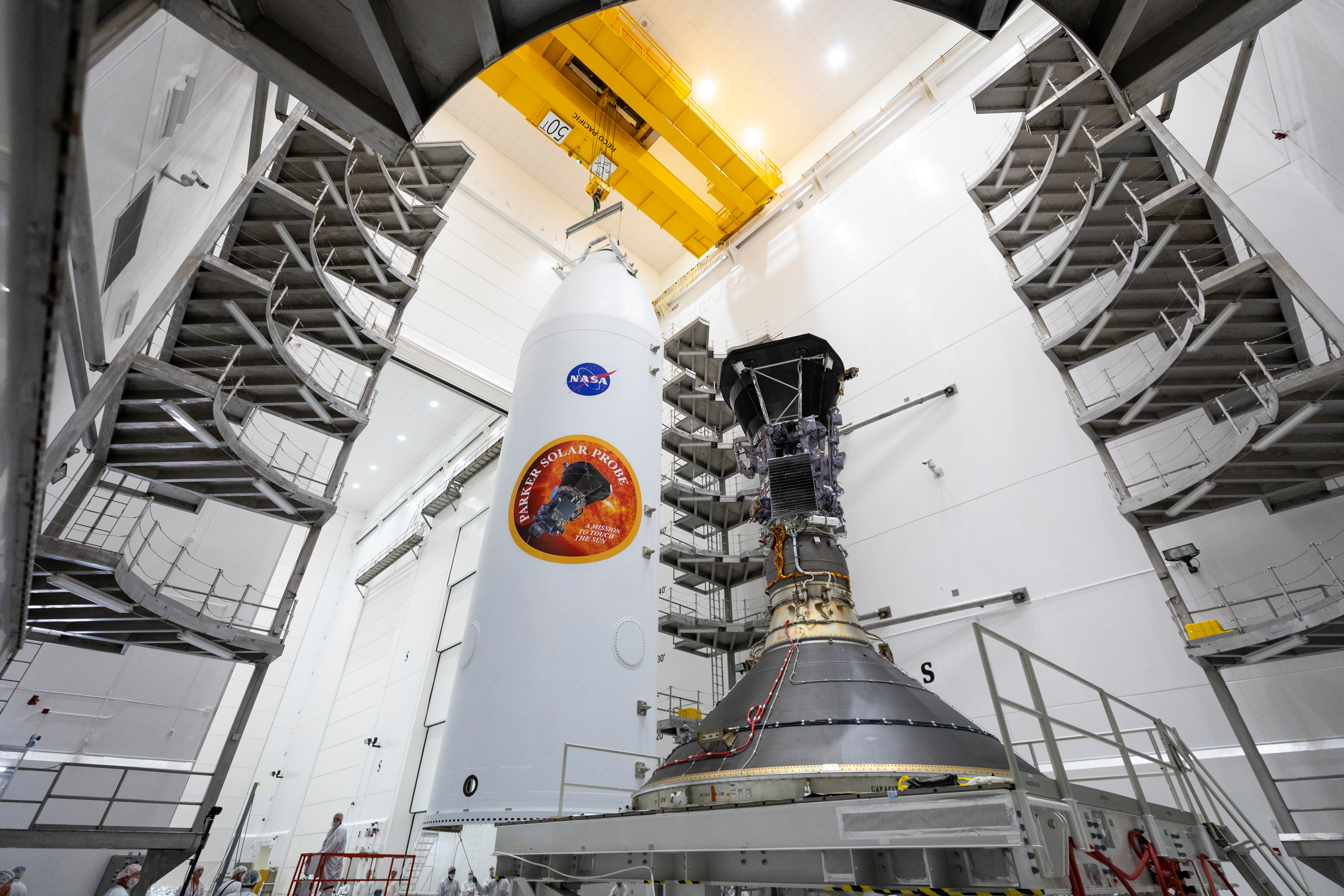
Parker Solar Probe, shown on July 16, 2018, is mounted atop its third stage rocket motor with one half of the 62.7-foot tall fairing that will encapsulate it. After encapsulation, the spacecraft will move from Astrotech Space Operations in Titusville, Florida to Space Launch Complex 37 on Cape Canaveral Air Force Station, where it will be integrated onto its launch vehicle, a United Launch Alliance Delta IV Heavy.
Credit: NASA/Johns Hopkins APL/Ed Whitman
High-Res Image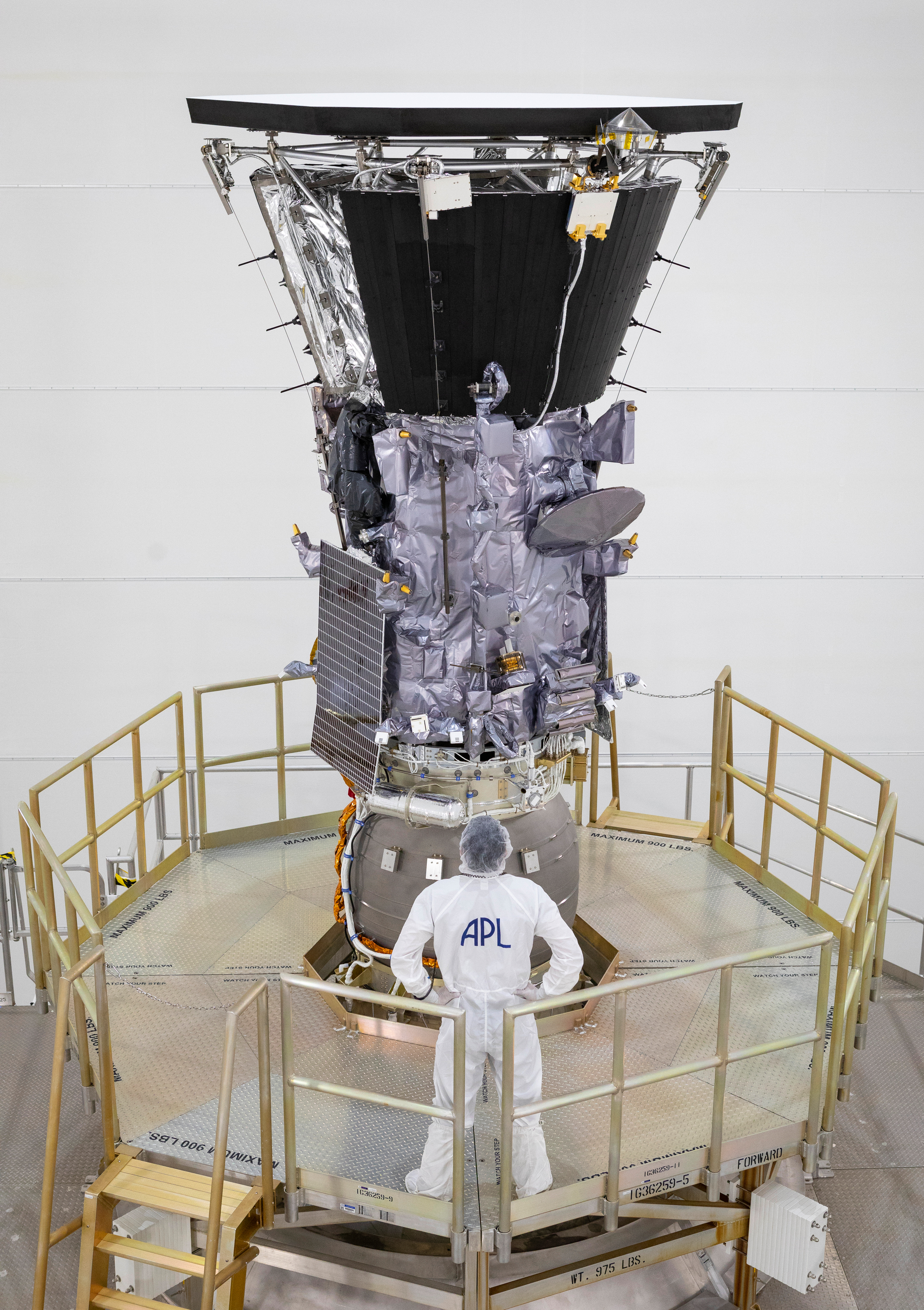
NASA’s Parker Solar Probe is shown here mated to its third stage rocket motor on July 16, 2018, at Astrotech Space Operations in Titusville, Florida. In addition to using the largest operational launch vehicle, the Delta IV Heavy, Parker Solar Probe will use a third stage rocket to gain the speed needed to reach the Sun, which takes 55 times more energy than reaching Mars.
Credit: NASA/Johns Hopkins APL/Ed Whitman
High-Res Image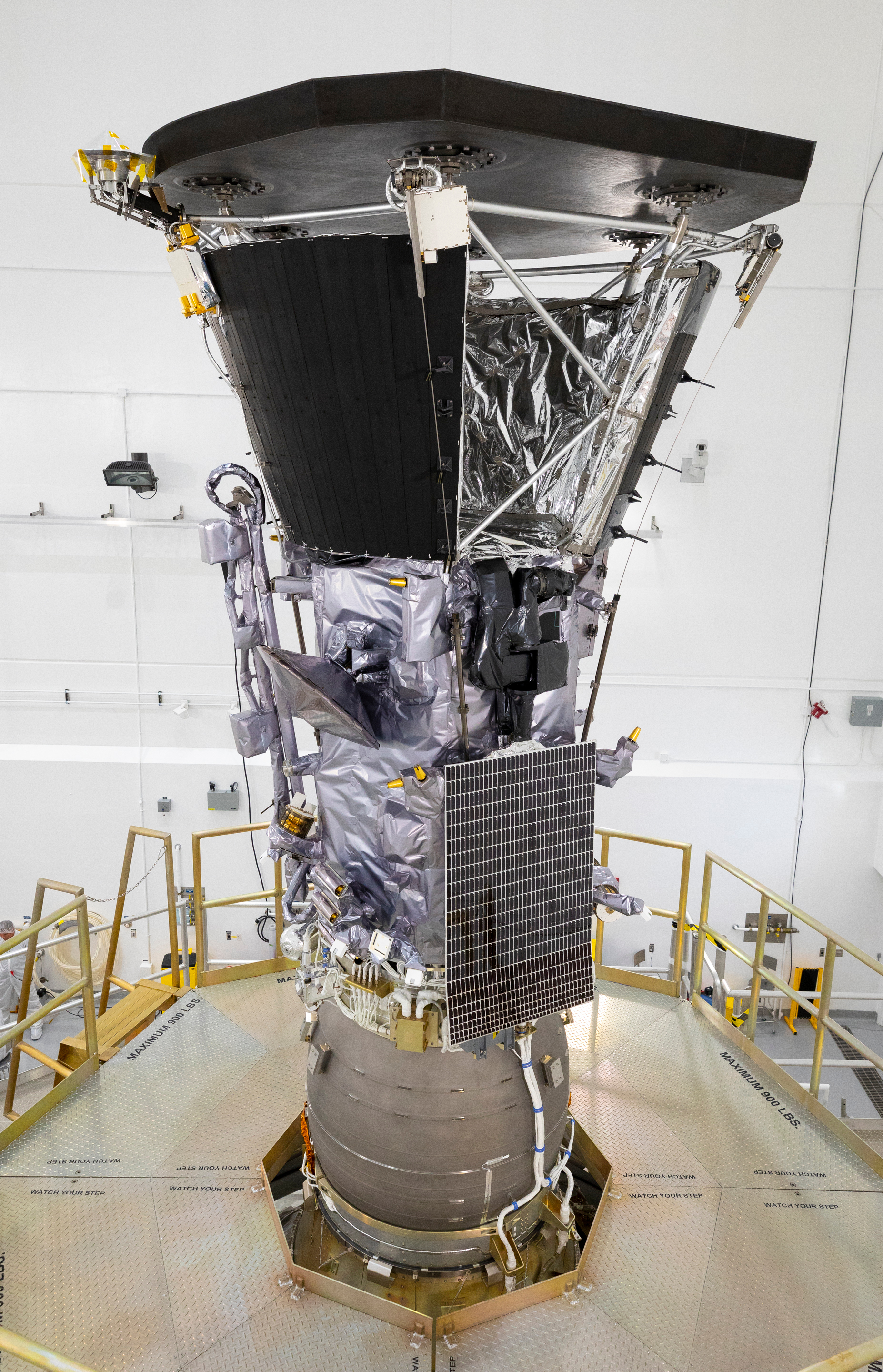
NASA’s Parker Solar Probe is shown here mated to its third stage rocket motor on July 16, 2018, at Astrotech Space Operations in Titusville, Florida. In addition to using the largest operational launch vehicle, the Delta IV Heavy, Parker Solar Probe will use a third stage rocket to gain the speed needed to reach the Sun, which takes 55 times more energy than reaching Mars.
Credit: NASA/Johns Hopkins APL/Ed Whitman
High-Res Image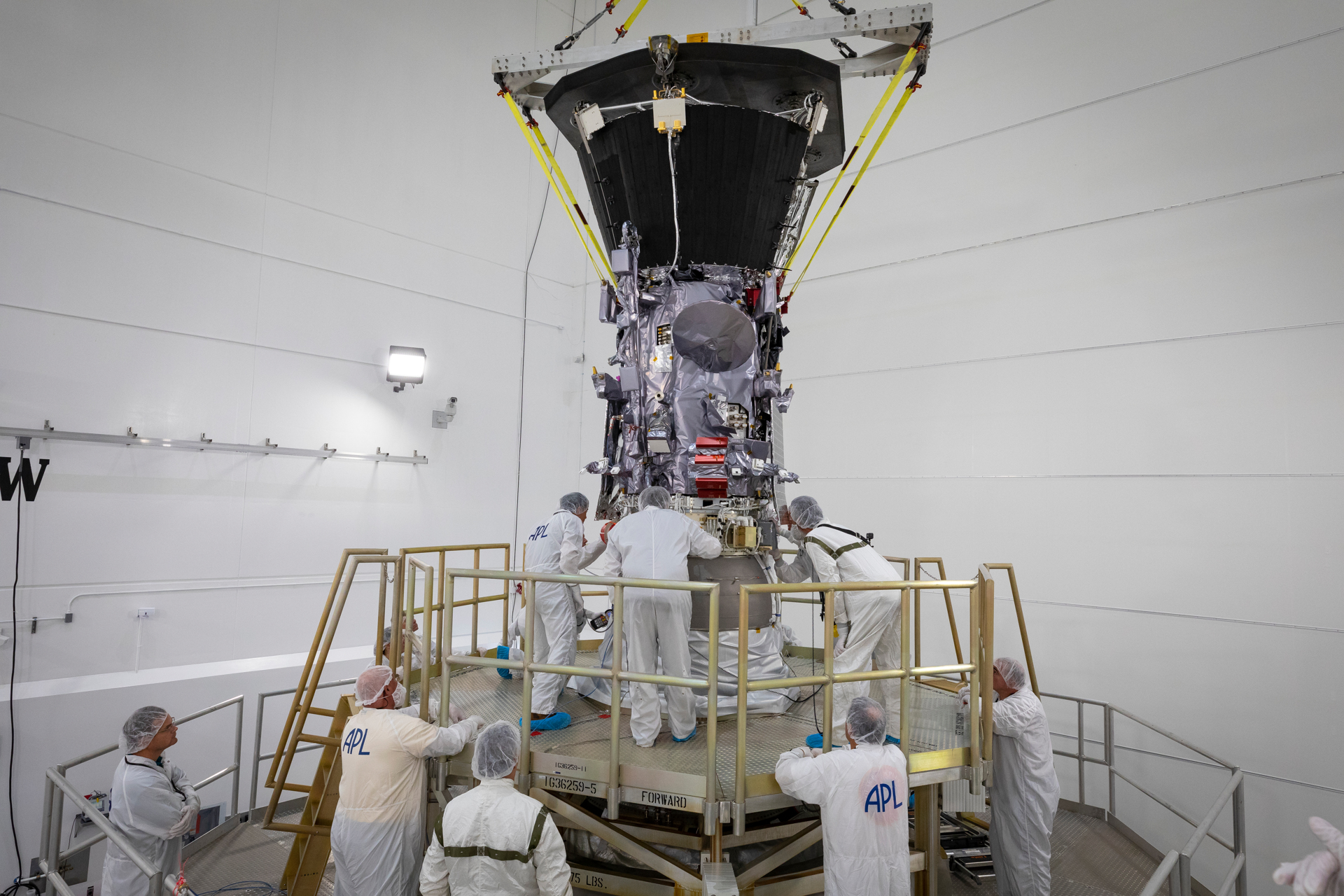
NASA’s Parker Solar Probe is mated to the third stage rocket motor on July 11, 2018, at Astrotech Space Operations in Titusville, Florida. In addition to using the largest operational launch vehicle, the Delta IV Heavy, Parker Solar Probe will use a third stage rocket to gain the speed needed to reach the Sun, which takes 55 times more energy than reaching Mars.
Credit: NASA/Johns Hopkins APL/Ed Whitman
High-Res Image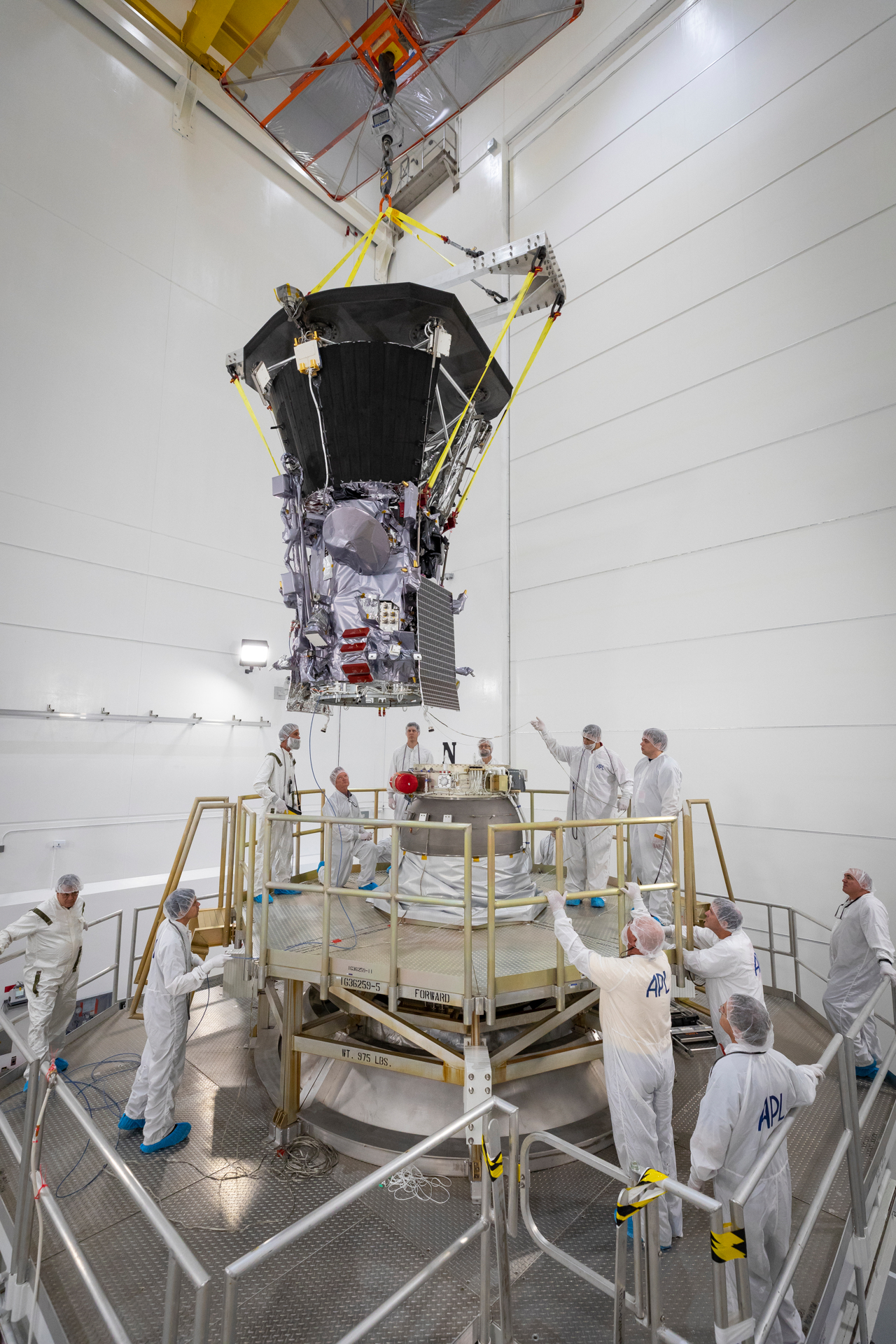
Parker Solar Probe is lowered toward the third stage rocket motor on July 11, 2018, at Astrotech Space Operations in Titusville, Florida. In addition to using the largest operational launch vehicle, the Delta IV Heavy, Parker Solar Probe will use a third stage rocket to gain the speed needed to reach the Sun, which takes 55 times more energy than reaching Mars.
Credit: NASA/Johns Hopkins APL/Ed Whitman
High-Res Image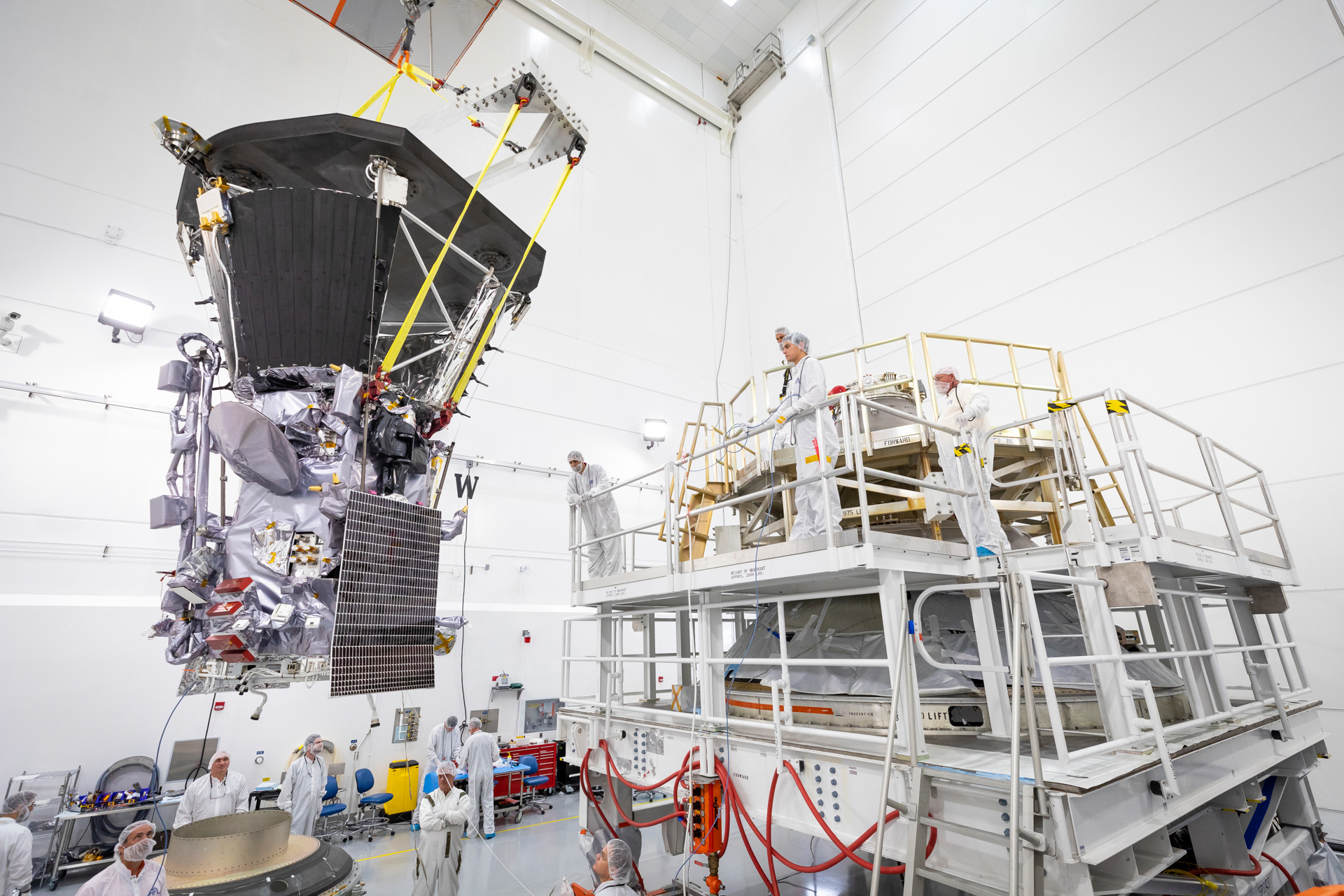
NASA’s Parker Solar Probe is lifted to the third stage rocket motor on July 11, 2018, at Astrotech Space Operations in Titusville, Florida. In addition to using the largest operational launch vehicle, the Delta IV Heavy, Parker Solar Probe will use a third stage rocket to gain the speed needed to reach the Sun, which takes 55 times more energy than reaching Mars.
Credit: NASA/Johns Hopkins APL/Ed Whitman
High-Res Image